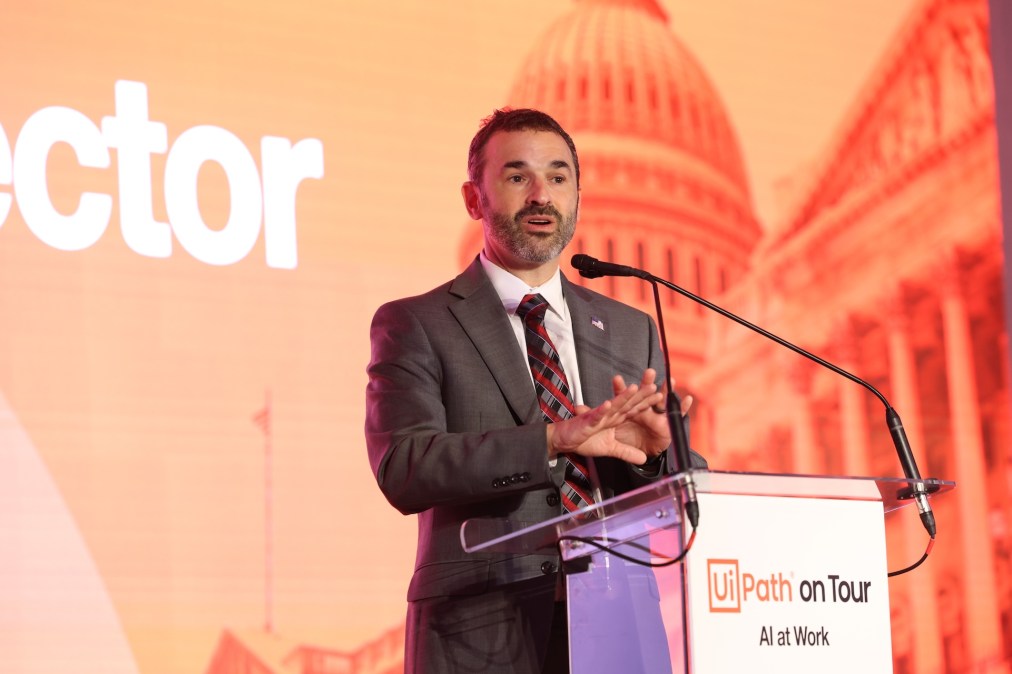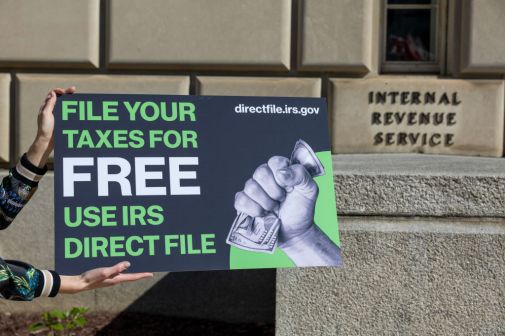With 2023 tax season in the rearview, IRS commissioner eyes expansion of AI capabilities

Fresh off a filing season that saw the Internal Revenue Service set records for customer response time and website traffic, the tax agency’s chief is now looking at how artificial intelligence-powered solutions can better address taxpayer needs in 2024 and beyond.
Speaking Wednesday at the Scoop News Group-produced UiPath On Tour: Public Sector event in Washington, D.C., IRS Commissioner Danny Werfel said the agency is using Inflation Reduction Act funds to continue to modernize systems through AI utilization. While taxpayers can interact with the IRS through paper, at in-person centers and over the phone, Werfel said that employing AI capabilities will allow taxpayers to not have to wait or be put on hold, instead logging on and interacting with those technologies to find the answer to a frequently asked question or challenge.
Werfel said AI can also assist the agency with automated efficiency to reduce mistakes and strengthen the tax system’s integrity, allowing investigators “to go where scrutiny is needed most.” The technology, according to Werfel, can be used to select the corporations and wealthy individuals most in need of auditing, and leave those who are “playing by the rules” alone.
“We’re gonna need an AI-powered solution to help taxpayers get the answers they need,” Werfel said. “Those solutions have to be developed, increasingly. … We have a strong baseline and momentum in using [IRA] funds, of starting to build AI, build chatbots and other solutions to go after these basic questions, but we’re really just getting started.”
These tools could also help those who face complicated challenges when it comes to filing, including taxpayers living in vulnerable communities, according to the commissioner. Werfel noted that these populations are more susceptible to fraud schemes and often do not have access to services that investigate suspicious or malicious acts.
“Maybe over time we can increasingly find AI solutions to address” more complicated problems, Werfel said. “But in the meantime, we will continue to have human interaction and expert account managers to help.”
Earlier this year, Werfel testified in front of the House Ways and Means Committee and acknowledged that the IRS is using AI to help identify corporations and individuals with a “higher risk for tax noncompliance.”
During the same hearing, Werfel said that from 2010 to 2022, Congress clawed back the IRS’s budget by 25%, a fact he mentioned again at Wednesday’s event.
The agency’s use of technology was “stagnant” over that time period, he added, despite the tax system reportedly growing in number of filings and overall complexity over the course of 12 years.
The IRS reported more than 98 million e-filed returns in 2010, accounting for nearly 70% of total filings. In 2022, the agency reported over 152 million e-filing returns received, almost 92% of the total filings.
During the ACT-IAC/DCI CX Summit in Arlington, Va., last year, Werfel said the IRS was making progress in the push for digitization and needed to address “some real mission critical-risks” with IRA funding. This included improvements to static IRS web tools and hiring staff so that taxpayers had a better chance of getting through to the IRS via phone calls. Werfel said Wednesday that call wait times were down to an average of three minutes this tax season, and the agency saw “the most traffic to IRS.gov we’ve ever had.”
The IRS is also working toward the creation of a prototype validation server, specifically at the Statistics of Income division, Office of Science and Technology Policy Deputy Chief Technology Officer Deirdre Mulligan said during the IAPP Global Privacy Summit earlier this month in Washington, D.C.
“The [SOI] at the IRS is creating multiple synthetic datasets and administrative tax data and building a prototype validation server using differential, formal privacy methodologies that empowers researchers to indirectly conduct statistical analyses on that confidential data,” Mulligan said.
The federal government, she added, wants to “make sure that even researchers are protecting that data.”






